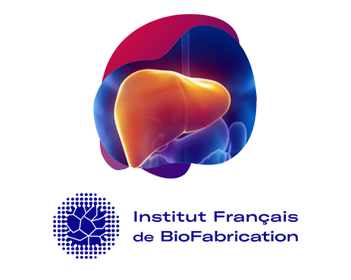Artificial intelligence (AI) in health represents multiple technologies which enable machines to sense, comprehend, act and learn so they can perform administrative and clinical healthcare functions.
Hépatinov will be closely involved in these technical and conceptual evolutions through the integration of AI in the training of all future health actors (medical and paramedical).
- Indeed, one of the objectives of Hépatinov is to develop new courses for paramedical staff in particular; because there is a crucial need to reframe nursing education and incorporate technology and machine learning into their curricula.
- Furthermore, international multidisciplinary courses focused on the clinical applications of liver bioengineering and the applications of AI in liver surgery, hepatology and in radiology will be developed.
- Hépatinov, in partnership with Institut Français de BioFabrication , has launched a training module on organ bioconstruction which has attracted students, mostly from engineering “Grandes Ecoles”. The Ludwig-Maximilian University of Munich (Germany), the University of Lund (Sweden), the University of Szeged (Hungary), the University of Porto (Portugal) and Paris-Saclay University (France) recently created a pilot European University, the European University Alliance for Global Health (EUGLOH) , driven by European values and committed to training in global issues of health and wellbeing.
-

-

- EUGLOH was launched in September 2019 and involves around 200,000 students from undergraduate to doctoral degrees, as well as academic and non-academic staff from the five universities. Tissue bioengineering, emerging diseases and digital health and technologies (big data, AI and robotics) are some of the key issues addressed by EUGLOH. Hépatinov will promote strong links between Paris-Saclay University and its European partners, Université Technologique de Compiègne, CentraleSupélec, Inria to enable the creation of multidisciplinary European courses.
The goals
Development of a Master course for paramedics focused on new technologies and AI in hepatology and liver surgery.
Creation of integrated teaching focused on the application of AI and computational mechanistic models to liver surgery, hepatology and interventional radiology.
The development of digital tools for liver surgery and interventional radiology requires the training of young practitioners; serious games, simulations and role-playing will be used. New courses are needed to train junior clinicians and scientists according to their specific skills and requirements at the interface of clinical work and computational concepts. A Biomedical and Environmental Engineering major has been integrated in CentraleSupélec new Engineering curriculum. In this context, several interactions will be possible with Hépatinov partners. As part of the "Big data and Health" theme, Hépatinov partners will be able to present the data acquisition tools and the role of data in daily clinical practice and thus highlight the positioning of engineers in this context. In addition, integrated teaching (IT) will be proposed by Hépatinov partners. IT enables the implementation of all the theoretical concepts discussed in the context of the theme (Analysis of biomedical data, statistics & machine learning and signal processing). During the Master courses on Healthcare and Biomedical Services and Applied Mathematics, Hépatinov partners will propose research initiation projects.



